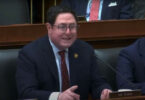Yesterday the Monetary Authority of Singapore (MAS) responded to a Singapore member of parliament’s (MP) questions about crypto-asset exposures following the collapse of FTX. MAS said that current bank exposures to crypto-assets were only 0.05% of total weighted assets.
It’s widely known that Singapore’s largest bank DBS has launched a digital asset exchange. However, it is proceeding cautiously and is only available to institutions and wealthy clients.
The Basel III rules for crypto-assets are currently at the proposal stage and have been through two rounds of consultation, with final rules expected soon.
MAS stated that banks have to keep $125 of capital against $100 exposure to a crypto-asset such as Bitcoin. That’s even higher than banks in the United States because Singapore imposes a minimum capital adequacy requirement of 10% compared to the Basel standard of 8%. That international standard translates to a one-for-one capital requirement.
Hence cryptocurrencies are treated as the riskiest assets possible.
These high capital requirements apply mainly to cryptocurrencies. Tokenized securities such as equities and bonds are treated similarly to conventional assets under the proposed Basel rules, although they attract a 2.5% surcharge.
Meanwhile, globally banks are pushing back against the overall limit to cryptocurrency exposures of 1% of Tier 1 Capital. It’s been calculated that the exposure of systemically important banks globally cannot be more than $20 billion combined.
The other contentious requirement is to treat custody of digital assets as equivalent to the exposure if the bank held the assets on its balance sheet.
Singapore Parliamentary questions re FTX
Yesterday 14 Singapore MPs submitted numerous questions about the collapse of FTX. Some queries were around how many retail traders were exposed, the total amount, and what could be done to educate consumers further about the risks. They also wanted to know about safeguards that could be imposed on cryptocurrency firms.
Other MPs wanted to know about Temasek’s investment in FTX – it recently wrote off $275 million. For example, the MPs wanted to know about accountability and whether the publicly announced cryptocurrency risks were also promoted to government investment funds such as Temasek and GIC.






